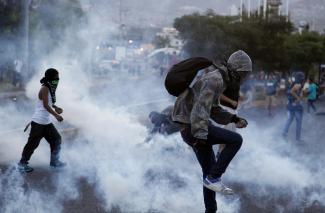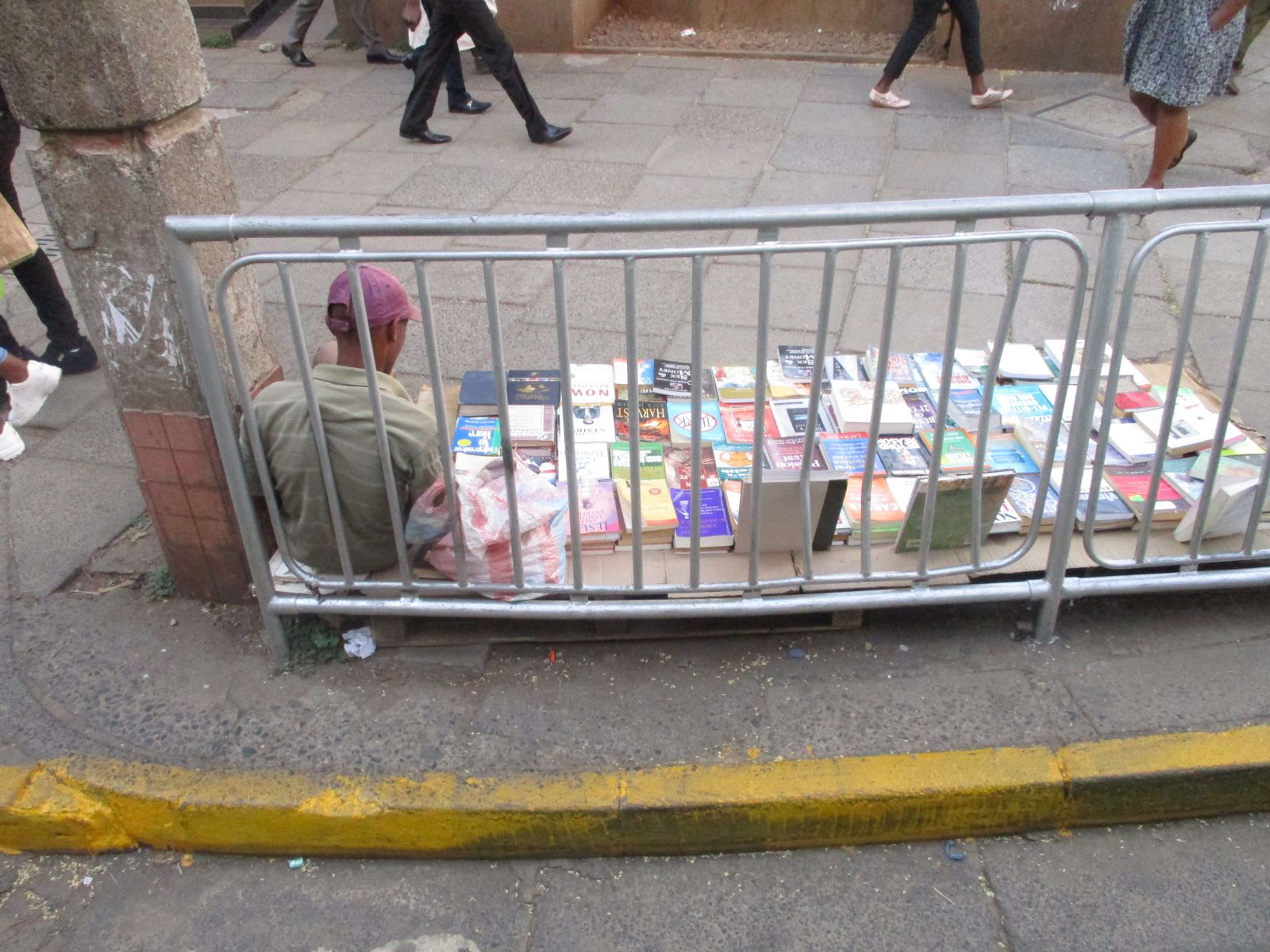Honduras
Protesting youth

Hondurans attach great importance to education, hoping to get a good job. Many people who had little or no education themselves make every effort to secure better educational opportunities for their children. Public service professions – teaching, for instance, or working in the care sector – are very popular. But the hope in recent years, the dream of secure employment, has become true less and less often. Nearly 40 % of the working-age people are jobless or underemployed. Many work in precarious conditions in the informal sector and smallholder agriculture (also note article by Korinna Horta in D+C/E+Z e-Paper 2018/11).
Many university graduates don’t find jobs that match their knowledge. Young people are unable to start a family and move out of their parents’ home. They have to accept unskilled jobs, often in export-oriented maquila factories in special economic zones. Others try their luck abroad.
Emigrating to the United States, however, means negotiating one of the most dangerous migration routes in the world – with little chance of success. US policy is becoming increasingly restrictive. The “temporary protected status” granted to Hondurans in 1999 has been revoked by US President Donald Trump. Therefore, tens of thousands of Hondurans will have to leave the US by 2020.
Nonetheless, thousands set out in mid-October, challenging both the Honduran government and the US administration. In response, Trump threatened to cut aid while President Juan Orlando Hernández accuses the opposition of having started the migrants‘ caravan. Neither leader, however, is offering anything that might inspire hope among the people concerned.
Many young people want to see their country change, says 18-year-old student Némesis: “We are a disaffected generation. That is why we took to the streets after the elections.” One slogan is raised at many rallies: “JOH, you are messing with the wrong generation!” “JOH” is President Hernández, who is leading the country ever deeper into a crisis of poverty, violence, corruption and human-rights abuses (see my article in D+C/E+Z e-Paper 2017/04).
Those who are now in their late 20s or early 30s were politicised by the military coup in 2009 and the ensuing years of violence, corruption and mounting human-rights abuse. Members of the opposition were targeted again and again. The past five years have seen frequent demonstrations by pupils and students with demands for greater security as well as protests against privatisation and corruption at universities and schools. The government has criminalised all participants. They were intimidated, threatened, and some were even murdered. After the general election in November 2017, young protestors again blocked the streets, calling for fair elections and respect for democracy. They are tired of being governed by a corrupt elite.
The voice of protest was particularly loud in the areas north of San Pedro Sula, Honduras’ second-largest city. In this region, maquila factories are the most important employers. Marel from San Pedro Sula says: “Because I live in an area with an extremely high murder rate, I live in daily fear of becoming a victim. That minimises any fear I might have of rallying against the authorities.”
Social media and personal networks are helping to create a pluralist information environment that did not exist in previous decades. Communication has become fast and easy, facilitating spontaneous protests. Independent internet platforms offer grassroots reporting. “Even if it is sometimes hard to filter news and verify its accuracy, the internet has become an extremely important source of information for our generation,” says Némesis. The mainstream media, which are in the hands of a small group of oligarchs, have lost their monopoly among the young.
Antonio, for example, uses social media to inform the people around him about corruption and injustice. His activities have attracted attention and intimidation. “The threats of the military police scare me,” he says, “but they won’t make me stop – I’m just more careful now”. Honduran youth feel cheated, and they are not putting up with it any longer.
Rita Trautmann is a social anthropologist. She worked in Honduras for the German development organisation DED and has been active in Honduran human-rights work since 2011.
trari@protonmail.com
Blog: https://hondurasdelegation.blogspot.com/













